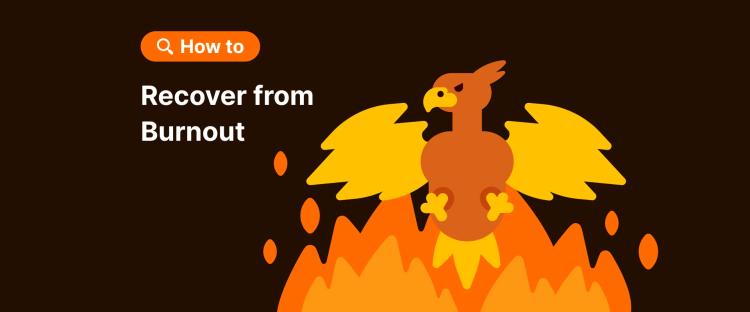Caregiving is one of the most selfless and demanding roles a person can take on. While it can be deeply rewarding, the emotional, physical, and mental toll it takes is undeniable, leading many caregivers to experience burnout. This article will help you recognize the signs of caregiver burnout, understand its causes, and explore proven strategies for prevention and recovery.
As someone who has dedicated my career to supporting my clients through their most challenging times, I bring a unique perspective to this topic. I'm a trauma educator and somatic practitioner with a background in sociology and training in body-oriented psychotherapy, trauma therapy, and mindfulness.
My specialty is nervous system healing, focusing on helping people build resilience and navigate their personal growth. My work draws from evidence-based practices like dance and movement therapy, Gestalt techniques, and somatic trauma work.
Caregiver burnout is not just about feeling tired. It's about recognizing when your well-being is at risk and taking steps to restore balance. Let's explore how you can balance your needs with those of your loved ones.
When you're stretched thin, the last thing you need is another long task. That's where Headway helps — 15-minute book summaries on stress, self-care, and building resilience that actually fit into your day.
📘Download Headway and find practical ways to protect yourself from burnout!
How caregiver burnout shows up: Quick answer
Here are some ways caregiver burnout can show up:
Physical fatigue — Persistent fatigue, frequent headaches, getting sick often, or muscle tension with shallow breath.
Emotional exhaustion — Feeling irritable, disconnected from loved ones, or resentful or frustrated towards the individual you're caring for.
Mental cloudiness — Inability to concentrate, experience forgetfulness, makes decision making difficult, and feeling hopeless.
Social detachment — Loss of interest in hobbies that you previously enjoyed, and have been isolating from friends and family.
Sleep disturbances — Changes in sleep pattern, trouble falling asleep, or feeling unrested even after sleep.
Constant high alert — Your nervous system stays in an active state, thus relaxing or being present is difficult.
What is caregiver burnout?
Caregiver burnout occurs when someone providing care for another person — often a family member — becomes emotionally, physically, and mentally exhausted. It's especially common among people caring for older adults or those with chronic illnesses like Alzheimer's or Parkinson's disease. The constant demands of caregiving, particularly in in-home settings, can feel overwhelming over time.
Burnout affects not just your emotions but also your body. The stress of always being "on" can overwork your autonomic nervous system, which controls movements, organs, and stress responses. This pressure can lead to multiple health problems, including muscle tension, fatigue, and feeling stuck on "high alert."
Without time for proper care for the caregiver's health and personal needs, burnout can develop quickly! For a deeper dive into how stress affects the mind and body, Bessel van der Kolk's book 'The Body Keeps the Score' offers valuable insights into how trauma and stress are stored physically and how healing can begin.
This overwhelming toll doesn't happen overnight; it builds over time, fueled by specific daily stressors and challenges that caregivers face. Understanding the common causes and risk factors for burnout is the first step to addressing it effectively.
Causes and risk factors for caregiver burnout
Burnout occurs because of ongoing stress and endless responsibilities. Caregivers often juggle their daily routines while helping their loved ones with tasks like eating, dressing, and attending doctor appointments, leaving little time for themselves. This lack of self-care is one of the most significant risk factors for burnout.

Common causes of caregiver burnout:
Ongoing stress and endless responsibilities
Balancing caregiving with daily routines like eating, dressing, and attending appointments
Lack of self-care becomes a significant risk factor over time
Physical stress symptoms such as tight shoulders, headaches, or shallow breathing
Emotional challenges, including feelings of devastation from watching a loved one's health decline
Limited support from family or caregiving resources
Understanding these common causes is crucial, as caregiver burnout doesn't just affect your day-to-day responsibilities and can have serious long-term consequences for your own health, relationships, and ability to provide care. 'Essentialism: The Disciplined Pursuit of Less' by Greg McKeown offers actionable tips for focusing on what matters most while letting go of unnecessary burdens.
Now, let's look into how burnout can impact every aspect of life.
What is the long-term impact of caregiver burnout?
Burnout affects every part of life. Physical exhaustion can weaken your immune system and lead to chronic fatigue. Emotionally, it can cause frustration, guilt, or resentment toward your loved one, which can lower your self-esteem and create a disconnection from others.
Over time, burnout can also impact your ability to provide care. It could even reduce your loved one's quality of life and force you to consider options like adult day care, assisted living, or nursing homes, which can be emotionally challenging for both you and your loved one.
Signs and symptoms of caregiver burnout
Caregiver burnout can appear in several ways:
Physical exhaustion: Feeling tired all the time, frequent headaches, or getting sick often
Emotional exhaustion: Feeling overwhelmed, irritable, or disconnected from your loved one and others
Mental exhaustion: Trouble concentrating, forgetfulness, or feelings of hopelessness
Caregivers may also notice changes in sleep patterns, lose interest in hobbies, and feel isolated from friends and family. If these symptoms resonate with you, seeking help from a doctor, therapist, or caregiver support group is essential.
Recognizing the signs of caregiver burnout is the first step, but how do you know if you're truly at risk? A quick self-assessment can help you evaluate your well-being and determine if it's time to seek additional support.
How to assess caregiver burnout: A quick self-assessment
You can assess your burnout risk with self-checks and tools like the Caregiver Strain Index or the Zarit Burden Interview, which evaluate your physical, emotional, and mental well-being.
Here are some questions for a quick self-assessment:
Do I feel drained or irritable most days?
Am I neglecting my physical health or personal needs?
Have I stopped enjoying things I used to love?
Do I feel angry or resentful toward the person I'm caring for?
If these questions resonate with you, don't hesitate to seek help. Talking to a healthcare professional or joining a support group can make a significant difference.
How to prevent caregiver burnout: Proven strategies
You can prevent caregiver burnout by taking steps to care for yourself. Here's how:
Prioritize your basic needs: Ensure you get enough sleep, eat balanced meals, and stay hydrated.
Incorporate physical activity: Add walking, yoga, or stretching to your daily routine to relieve stress and improve your well-being.
Connect with a support system: Join a caregiver support group to share experiences and gain encouragement from others who understand your situation.
Leverage local resources: Consider options such as adult day care or meal delivery services to reduce your workload.
Take breaks regularly: Schedule short breaks during the day or a few hours away when possible. Respite care or family assistance can provide the rest you need.
Learn to delegate: Don't hesitate to say no and ask for help with tasks — you don't have to do everything alone.
Focus on your well-being: Remember that prioritizing your health allows you to better support your loved one in the long run.

Following these strategies can prevent burnout and maintain a healthy balance while caregiving.
Preventing burnout begins with establishing habits that foster your well-being. For guidance on managing stress and incorporating mindfulness, '10% Happier' by Dan Harris is an excellent resource. It breaks down practical ways to cultivate calm amidst the chaos of caregiving.
Additionally, 'Atomic Habits' by James Clear provides tips for creating small, sustainable changes that lead to significant improvements over time. Both summaries are part of the Headway library, ready to inspire your self-care journey.
📘 Find resilience-building strategies for caregivers in the Headway app!
What is compassion fatigue?
Compassion fatigue happens when caring for someone who is struggling becomes emotionally exhausting. It's similar to burnout but comes from the stress of seeing someone you care about suffering. It can make you feel emotionally numb or disconnected, like you've run out of empathy to give.
This type of fatigue is connected to the "finite pool of worry." Humans have a limited amount of energy for worrying. Once we reach our limit, it's hard to care about more problems, or they might feel less important. Your brain naturally focuses on significant concerns and tends to set aside smaller ones.
If you're the type of person who often puts others first, you might be more likely to experience compassion fatigue. It's essential to recognize that you don't have to manage these feelings alone.
Recovering from a burnout: How long does it take?
It takes anywhere from a few weeks to several months to recover from burnout, depending on the severity of the burnout. Be patient with yourself and remember that small changes add up. Recovering from caregiver burnout takes time and effort.
First, admit you're burned out and ask for help. Try breathing exercises, muscle relaxation, or stretching to relieve physical stress. Spending time with loved ones or joining a support group can help you feel less alone. Start with small changes, like taking a short walk or deep breathing for five minutes daily.
Recovery is a gradual process that requires patience and actionable steps. If you're ready to rebuild your energy and resilience, 'Burnout: The Secret to Unlocking the Stress Cycle' by Emily and Amelia Nagoski is a must-read. Headway's summary of the book explains how to break free from the stress loop and regain vitality.
How to prevent caregiver burnout while taking care of a family member
Caregiving doesn't mean sacrificing your well-being. Preventing burnout requires balancing your responsibilities as a family caregiver with attention to your needs. Here are some tips:
Stay aware of your mental health by checking in with how you feel emotionally.
Use available caregiver resources, like respite care or adult day care, to reduce stress.
Take care of your health by exercising regularly, eating well, and staying hydrated.
Seek support from organizations like the Family Caregiver Alliance or join a caregiver support group.
By prioritizing self-care and using available resources, you'll be better equipped to care for your loved one and prevent burnout.
Stay strong as a caregiver with expert insights from Headway!

Balancing caregiving responsibilities with self-care can feel overwhelming, but Headway book summaries make it easier. By offering quick, actionable insights from top nonfiction books, Headway supports your well-being and helps you manage stress. Here's how:
Save time while learning: Gain valuable stress management and self-care strategies in just 15 minutes per summary.
Access expert advice: Discover practical tools from books by leading psychologists and wellness experts to handle burnout and maintain balance.
Stay inspired: Explore motivational summaries to recharge your mindset and stay focused.
Build a self-care habit: Use Headway's curated lists and recommendations to create a quick, meaningful reading routine.
Learn on the go: With audio and text summaries, absorb key ideas during errands, walks, and short breaks.
Headway helps you stay strong and resilient while caring for your loved one. Start exploring today to overcome different stages of burnout and thrive.
📘Download Headway for self-care strategies that fit into your caregiving schedule.
FAQs about caregiver burnout
What is caregiver syndrome?
Caregiver syndrome is another term for caregiver burnout — when someone providing care becomes emotionally, physically, and mentally exhausted. Caregiver syndrome occurs when the ongoing demands of caregiving are more than your body's stress response system can manage, leading to feeling tired, grumpy, and unable to function. Caregiver syndrome affects both your physical and emotional health, as well as your ability to provide quality care.
What are the three C's of caregiving?
The three C's of caregiving are Communication, Compassion, and Consistency. Communication ensures that you can understand your loved one's needs and put together the relevant care. Compassion enables you to provide care with empathy and patience. Consistency allows you to create routines that benefit both you and the person you are caring for, decrease stress over time, and foster trust.
What are the top 3 qualities of a caregiver?
The top three qualities include patience, a strong sense of empathy, and being resilient. Patience is helpful for those moments that are frustrating, while empathy helps you understand your loved one's feelings and needs. Resilience often helps you persevere when times are tough. However, it is essential to remember that caregivers often need support, breaks, and self-care.
Why am I so angry as a caregiver?
Anger is a symptom of caregiver burnout. It is not uncommon for a caregiver to be simply exhausted from caring for another person without breaks or without support. When caregivers are exhausted, their nervous systems are on high alert, and they tend to become irritable and angry more easily. Often, this anger is a symptom of the provider feeling overwhelmed, underappreciated, or guilty for neglecting their own needs.
When should I see a healthcare provider?
If you're feeling overwhelmed, angry, or numb all the time, it's crucial to talk to a doctor or counselor. You should also seek help if you're consistently tired, tense, or unwell. If you're having difficulty caring for someone or feel angry or resentful toward them, that's another sign to ask for support. A healthcare professional can help you deal with these feelings, care for your body and mind, and guide you toward feeling better.










